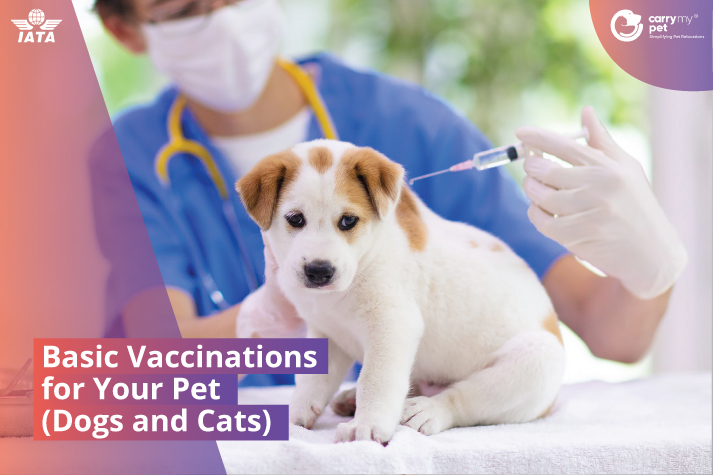
23 Oct
Basic Vaccinations for Your Pet (Dogs and Cats)
Vaccines offer simple, effective, safe, and cost-efficient protection against
diseases. They use an organism’s natural immune system to build immunity
against certain diseases and prevent re-infection. It is a safe and ingenious
way of provoking a response from a person’s immune system, and depending
on what vaccine it is, its protection can last for years or even decades. A
vaccine is important because rather than acting as a cure, it acts as a
prevention against diseases. Your pet needs and deserves the same level of
protection against diseases as you, which is why vaccinating them is so
important. Here are some basic pet vaccinations your pet should get: Basic or core vaccines are essential, as they prevent severe diseases, and reduce
the risk of exposure and the risk of spread of disease from dogs to dogs/other
humans. They are also mandatory if you ever wish to move to a foreign country,
as most countries require pets to have their basic vaccinations completed before
import. These are as follows: While you should always consult your vet for an accurate schedule, here is the
average schedule for dog vaccinations: *Canine influenza and Lyme Vaccinations are prescribed based on the lifestyle
of the dog. Once your puppy has all its basic vaccinations done, your vet can prescribe a
vaccination schedule for your adult dog. This typically consists of boosters for
the Distemper, Hepatitis, Parvovirus, and Parainfluenza which were given as
puppies. It is recommended to get booster doses for their Rabies, Leptospirosis,
Distemper, Hepatitis, Parvovirus, and Parainfluenza. In addition, if necessary,
the Canine Influenza and Lyme vaccines, which depend upon your dog’s
lifestyle and the vet’s prescription. Vaccines are effective for a certain time period before a booster or fresh shot
is required. Here are the effectivity periods of dog vaccinations: As is the case with humans and dogs, basic or core vaccines for your cat are
essential and crucial in making sure they grow up healthy and disease-free.
While you should always discuss the mandatory vaccinations for your cat with
your vet, the following are commonly recommended as basic vaccinations for your
cat. These are as follows: Cat vaccinations depend on a few factors, such as whether the cat has any medical
conditions from birth, or if the cat is living indoors only or outdoors as well.
As always, you should get in touch with your vet to plan out an exact schedule.
That being said, here is an estimated schedule for an indoor house cat:Basic Vaccinations
for Your Dogs
Non-Core Vaccines for
Your Dog
Dog Vaccination
Schedule
Dog Vaccination
Schedule/Effectiveness
Basic Vaccinations
for Your Cats
Cat Vaccination
Schedule/Effectiveness






AUTHOR’S BIO
Carry My Pet
Passionate pet enthusiasts and globetrotters, dedicated to easing furry friends' journeys worldwide. Penning tales of compassion at CarryMyPet, where every relocation is a tail-wagging adventure.